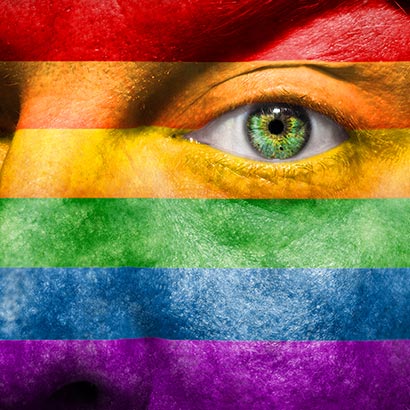Tech gone bad | LGBTQ groups slam gay facial recognition technology claims
 LGBTQ organisations have condemned “dangerous and flawed” claims that a computer programme can identify lesbian and gay people simply by the way they look.
LGBTQ organisations have condemned “dangerous and flawed” claims that a computer programme can identify lesbian and gay people simply by the way they look.
It was recently reported that research from Stanford University had shown that artificial intelligence is able to accurately tell if a person is gay or straight based on pictures of their faces.
The researchers used over 35,000 facial images posted by men and women on a dating site and said that the technology had an 81% success rate for identifying if the male individuals were gay and 74% success in guessing if the women were lesbian.
Human judges who looked at the same pictures achieved much lower accuracy: 61% for men and 54% for women.
The groups GLAAD and HRC have responded by criticising the media for not pointing out the “myriad flaws” in the study which “could cause harm to LGBTQ people around the world”.
“Technology cannot identify someone’s sexual orientation. What their technology can recognise is a pattern that found a small subset of out white gay and lesbian people on dating sites who look similar. Those two findings should not be conflated,” commented Jim Halloran, GLAAD’s Chief Digital Officer.
“At a time where minority groups are being targeted, these reckless findings could serve as weapon to harm both heterosexuals who are inaccurately outed, as well as gay and lesbian people who are in situations where coming out is dangerous,” said Halloran.
The groups argued that the study did not include people of colour, did not independently verify crucial information such as sexual orientation, and assumed there is no difference between sexual orientation and sexual activity. It was also, crucially, they said, not peer reviewed.
“The study claims to detect gay men from the pool of photos on the dating sites with 81% accuracy. Even if this were true given the aforementioned flaws, it still means that heterosexual men could therefore be identified as gay nearly 20% of the time,” continued the activists.
Are activists rejecting science because they don’t agree with its results?
HRC Director of Public Education and Research Ashland Johnson, said: “This is dangerously bad information that will likely be taken out of context, is based on flawed assumptions, and threatens the safety and privacy of LGBTQ and non-LGBTQ people alike.
“Imagine for a moment the potential consequences if this flawed research were used to support a brutal regime’s efforts to identify and/or persecute people they believed to be gay. Stanford should distance itself from such junk science rather than lending its name and credibility to research that is dangerously flawed and leaves the world – and this case, millions of people’s lives – worse and less safe than before.”
Michal Kosinski, co-author of the study and an assistant professor at Stanford, defended the research and said one of its aims was to warn people of the potential impact of the technology, which is already in existence.
“One of my obligations as a scientist is that if I know something that can potentially protect people from falling prey to such risks, I should publish it,” he told The Guardian. “Rejecting the results because you don’t agree with them on an ideological level … you might be harming the very people that you care about.”
He also argued that the study further helps LGBTQ people by adding further weight to the belief that sexuality is biologically determined.
“It’s a great argument against all of those religious groups and other demagogues who say, ‘Why don’t you just change or just conform?’ You can’t stop, because you’re born this way,” he said.
GLAAD and HRC revealed that they had shared their concerns with Stanford University about the research months ago and warned against “overinflating” the results or the significance of them. “There was no follow-up after the concerns were shared and none of these flaws have been addressed,” they added.
Leave a Reply